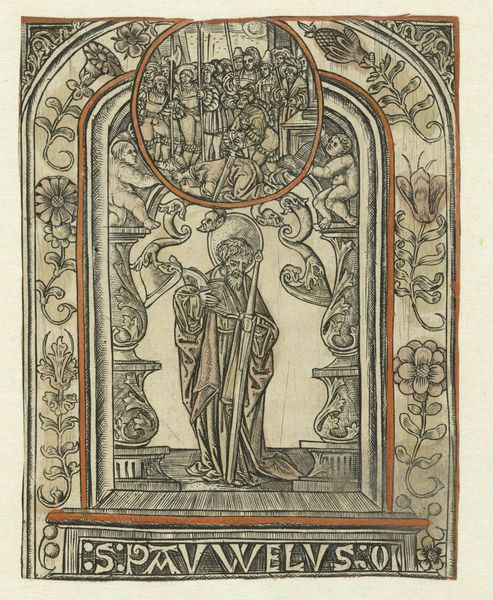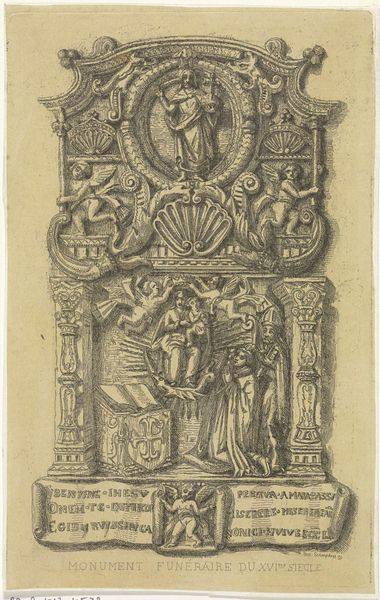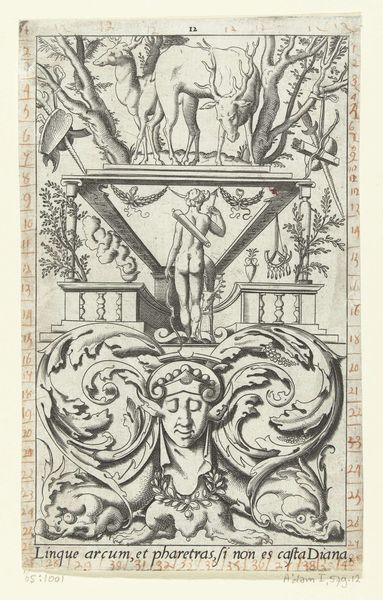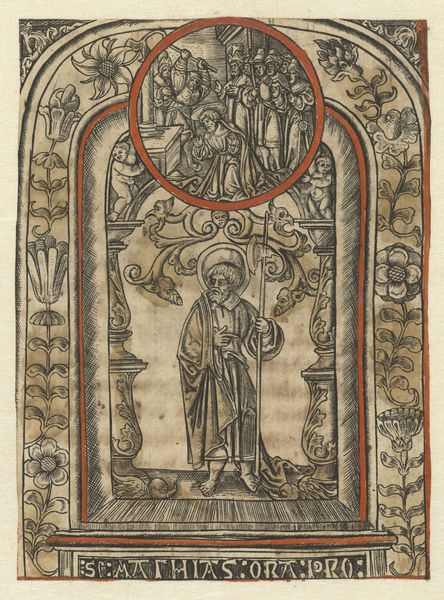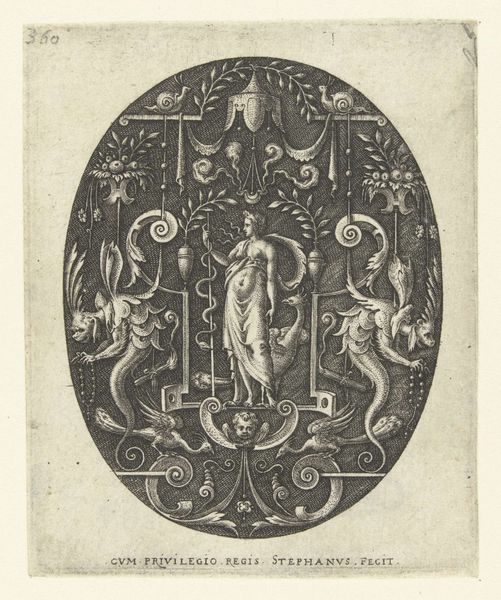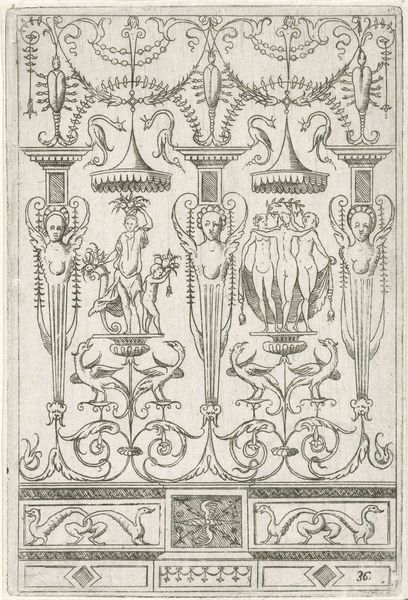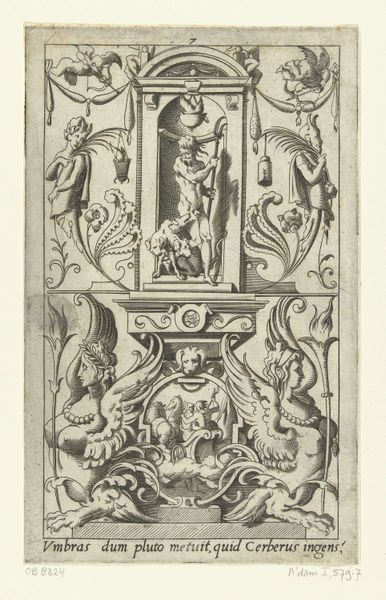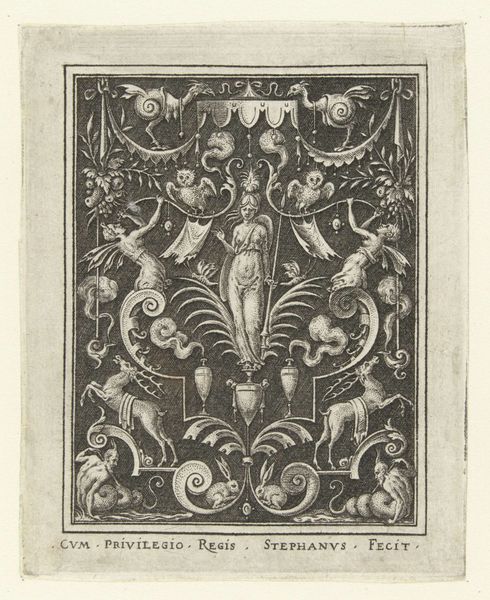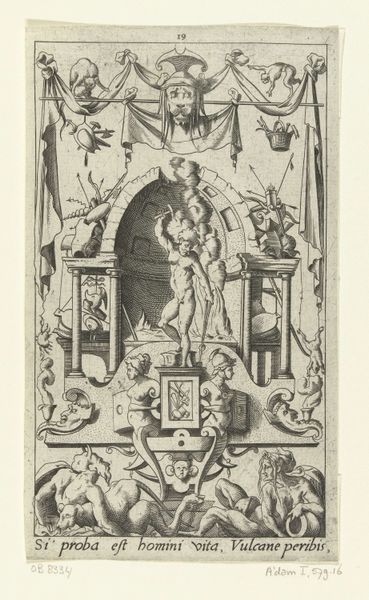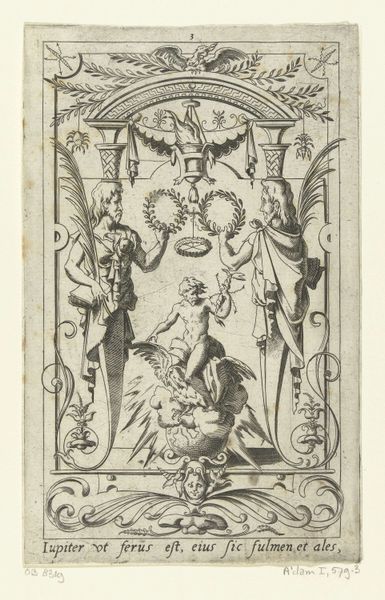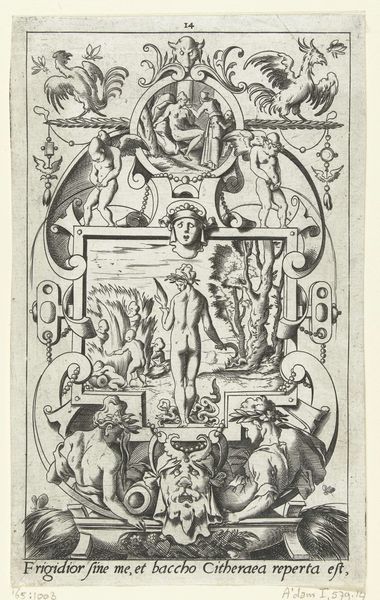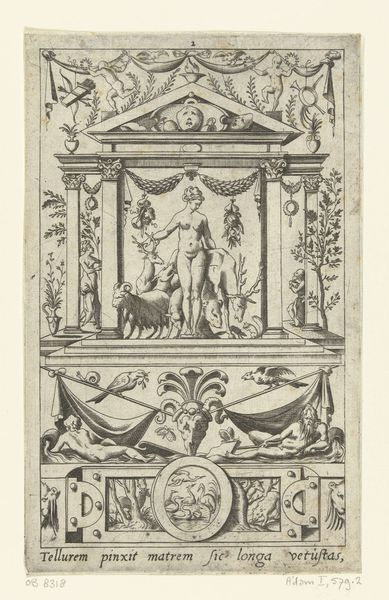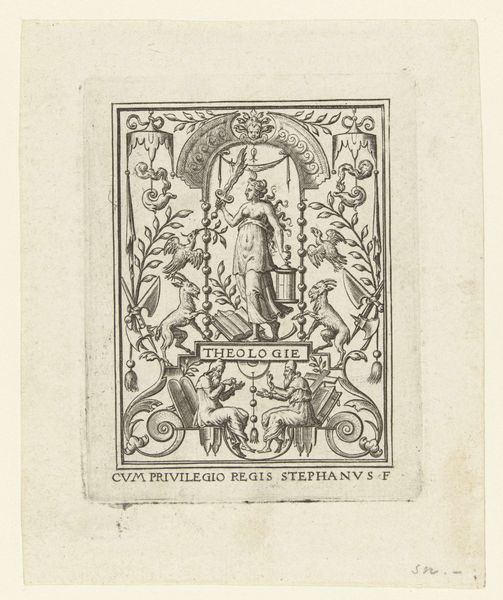
print, engraving
# print
#
figuration
#
11_renaissance
#
line
#
history-painting
#
northern-renaissance
#
engraving
Dimensions: height 104 mm, width 78 mm, height 104 mm, width 78 mm
Copyright: Rijks Museum: Open Domain
Editor: So, this engraving, "The Apostle Peter and his Martyrdom" by Allaert Claesz., likely made sometime between 1510 and 1530, is striking because of its precise linework despite the violent scene depicted. I am intrigued by the combination of religious icon and martyrdom scene – what elements of this artwork stand out to you? Curator: Considering the production of this print, let's examine its socio-economic context. Engravings like these weren't merely devotional objects; they were commodities. The precise lines you admire? They speak to the highly skilled labor involved. Notice the contrast: detailed figuration versus decorative elements. How do these material choices speak to both spiritual messaging and market demands in the Northern Renaissance? Editor: That makes me think about who might have bought it. Was it aimed at wealthy patrons or a broader audience eager for affordable religious imagery? Curator: Exactly! And that’s where understanding the means of production becomes crucial. Printmaking allowed for wider dissemination of images than painted panels or illuminated manuscripts. It democratized art, to a degree. Were these prints hand-colored, further differentiating them in price and appealing to different classes of consumers? These choices influence meaning. Editor: So, examining the material and method of its production opens up a whole new way to think about the art’s purpose. I see now it’s not just about religious devotion, but about craftsmanship, trade, and access to imagery. Curator: Precisely. Analyzing the materiality gets us closer to understanding its impact and its role within the society that created it. Each mark on that plate and the subsequent impression represents a whole web of decisions. Editor: Thanks. I’ll definitely look at art through that materialist lens from now on.
Comments
No comments
Be the first to comment and join the conversation on the ultimate creative platform.
